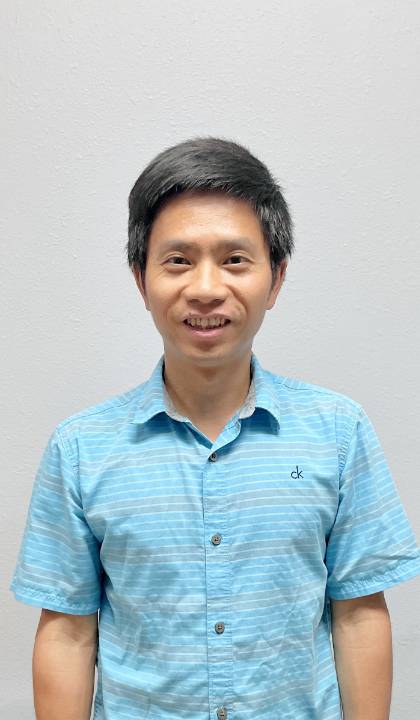SLU Joins NASA-Funded Consortium to Advance Sustainable Space Life Support Systems
Maggie Rotermund
Senior Media Relations Specialist
maggie.rotermund@slu.edu
314-977-8018
Reserved for members of the media.
ST. LOUIS – Saint Louis University has joined a NASA-funded consortium to develop a closed-loop biological system that can convert human waste into useful materials for in-space biomanufacturing. The innovations will help build self-sustaining ecosystems for future space missions.
NASA announced the selection of two new consortia in October to conduct ground-based research that supports the agency’s goal of maintaining a sustained human presence in space.
Required! For proper ADA compliance, please give the iframe a title in the above title="" paramater. Example title="1 minute 30 second video: How to apply to SLU". Caption goes here. Delete this text if caption not needed.
SLU is a member of “An Integrative Anaerobic Digestion and Phototrophic Biosystem for Sustainable Space Habitats and Life Supports (AD ASTRA),” led by Washington University in St. Louis. The team includes eight scientists from six universities across Missouri, Delaware, and Florida.
Laibin Huang, Ph.D., assistant professor of biology, is the principal investigator at SLU. He will lead efforts to characterize and optimize the microbial communities driving the anaerobic digestion process, building on his long-standing work on understanding the microbial processes that regulate carbon and nitrogen transformations in various ecosystems.

The AD ASTRA consortium will design an anaerobic digestion (AD) process to transform human waste into organic acids and other compounds that can be used in downstream life-support and biomanufacturing systems. The research aims to:
- Develop and characterize an efficient AD process that can convert waste from humans in space into volatile fatty acids rather than methane.
- Engineer and characterize cyanobacterial strains and their coculture with heterotrophs that can use AD-processed wastewater and carbon dioxide to produce oxygen, protein-rich biomass as a food source, polyhydroxyalkanoate (PHA) polymers, and natural products such as β-carotene.
- Understand how simulated low gravity affects microbial production, as well as the phototrophic metabolisms of workhorses during bioproduction.
“The balance of microbial communities is essential to the anaerobic digestion system, as it determines nutrient recycling and the fate of volatile fatty acids (VFAs), such as acetate and CO₂, produced during the process,” Huang said.
Huang’s team at Saint Louis University includes postdoctoral fellow Zhine Wang and several undergraduate students.
The SLU team will use molecular and sequencing-based techniques to monitor the conversion of waste to volatile fatty acids and control methane production by analyzing the key gene responsible for methane biosynthesis.
This work provides the biological foundation that allows the consortium to design a closed-loop life-support system where microbial processes are harnessed, not hindered, for sustainable resource recovery in space habitats.
AD ASTRA is led by Yinjie Tang at Washington University’s McKelvey School of Engineering. In addition to Huang at SLU, the team includes researchers at the University of Florida, Lincoln University, University of Delaware and the NASA Lab at Kennedy Space Center.
Saint Louis University
Founded in 1818, Saint Louis University is one of the nation’s oldest and most prestigious Catholic research institutions. Rooted in Jesuit values and its pioneering history as the first university west of the Mississippi River, SLU offers more than 13,300 students a rigorous, transformative education that challenges and prepares them to make the world a better place. As a nationally recognized leader in research and innovation, SLU is an R1 research university, advancing groundbreaking, life-changing discoveries that promote the greater good.

















